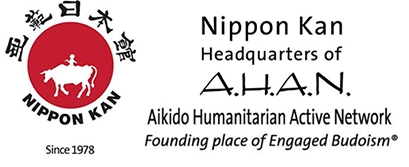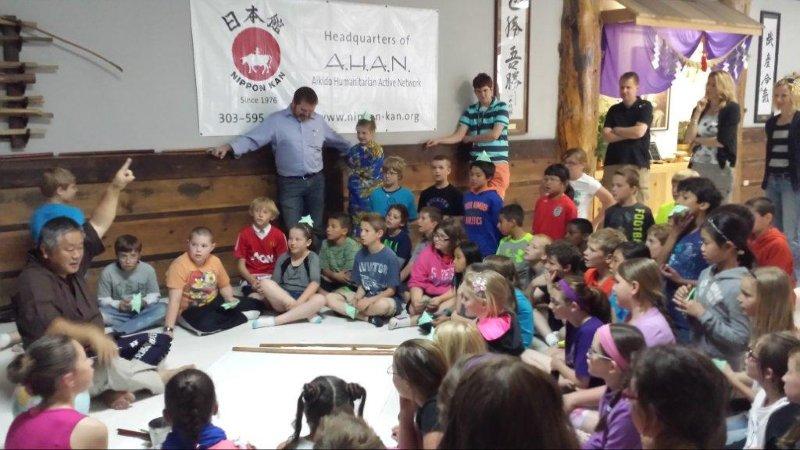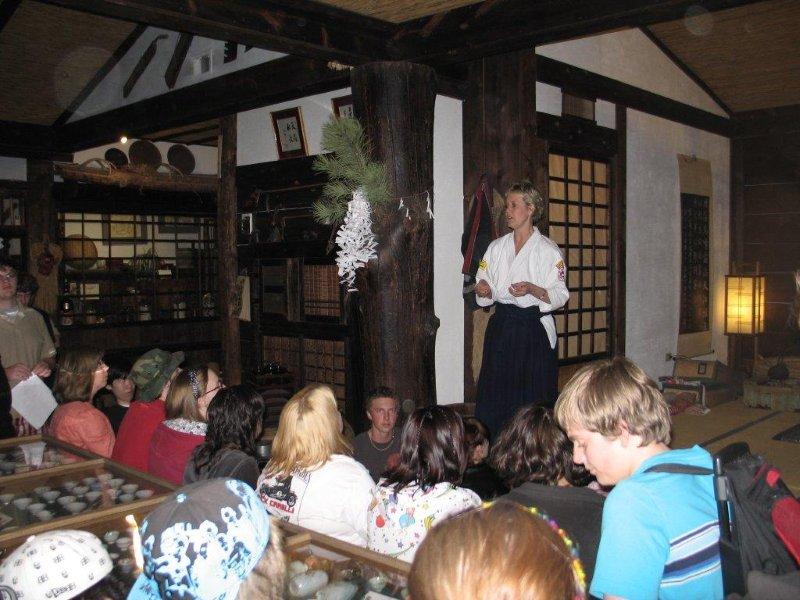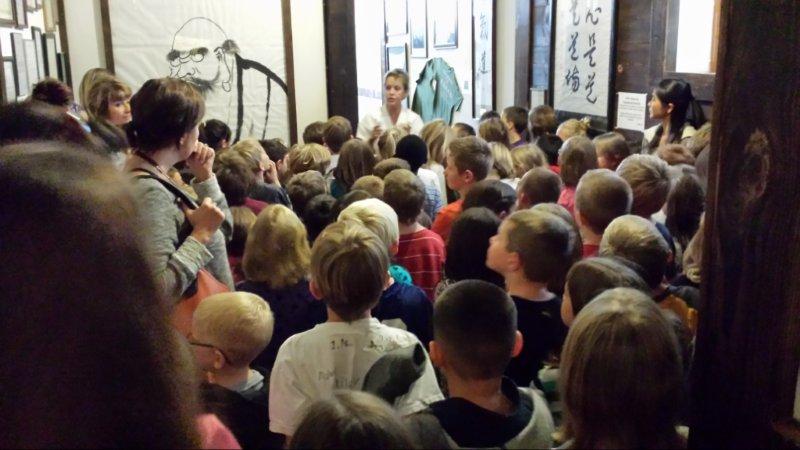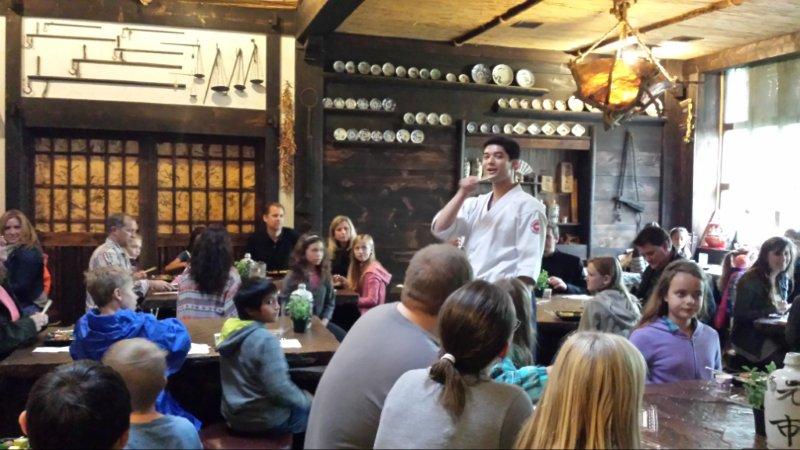June-Aug 2015
In most years, March through May are the months when most of our school cultural fieldtrips are scheduled. This year however we had requests for fieldtrips throughout the summer. The fieldtrips are about 2 hours in length and are usually held from 10:00 am. to about noon. Since the fieldtrips are held in the mornings during the week, the staff that serves as instructors and guides miss work or school time. For this reason we set the minimum number of participants at 50. At times we have had fieldtrips for over 130 students at one time; a very large group of students indeed! During this summer period this year, Nippon Kan staff entertained over 1000 school children, parents and teachers who visited Nippon Kan for this very unique cultural experience.
Interestingly, even with Asian studies in school, some of the children we meet are still confused about Asian culture; sometimes thinking that China, Japan and Korea are all one country and share the same culture. Alarmingly, some of the adult supervisors on these tours think so as well.
As a 501 C 3 Non Profit organization, Nippon Kan is not sponsored by the Japanese government and does not have the resources of government sponsored agencies have. Government agencies have the funding for local, professional cultural relations divisions that use pamphlets, videos, glossy photos and give-aways to teach Japanese culture. Modern approaches have been experimented with like the support of new age dance and theater productions that have been promoted to introduce Japanese history and culture to citizens in the United States.
In our experience, trying to introduce Japanese culture to average Americans through New Age Dance interpretations of Japanese traditional dance (Noh) might not be the most widely successful approach. This approach is more an illusion of self gratification than true wide spread cultural exchange.
The Japanese government also supports cross cultural exchange programs for young Americans to live in Japan as a way to build towards future cultural understanding. Unfortunately these programs reach only a limited number of privileged kids who don’t necessarily return from these visits to promote Japan. For many of these young people, living in Japan is a comparative experience and only one more country to add to their resume. Only a very few of these select students will fulfill the mission of promoting cultural understanding of Japan in the United States. This whole concept does not reach the average American student or family and falls short of widespread introduction of Japanese cultural exchange.
Elementary school is an innocent time for children and they are impressionable at that age. It concerns me that today children might be being taught that Japanese culture is part of Chinese or Korean culture; each country is unique, with their own history and culture and should be taught as such.
In earlier days at Nippon Kan we visited schools directly to perform Japanese cultural demonstrations. Now school children all over the Front Range come to Nippon Kan on fieldtrips for our Japanese Cultural Tour program. All in all, we have been involved with teaching children about traditional Japanese culture for over 35 years.
Today children in the United States are taught about Japanese culture through anime or cosplay at school which obviously is not a very realistic interpretation of traditional Japanese culture.
With 35 years experience teaching Japanese culture in Denver, I think all Japanese government public relation organizations need to think of an approach with a wider appeal of teaching Japanese culture. We need a more productive positive approach.
For 35 years we have been teaching Japanese culture with an honest, interactive approach to thousands of children, all without the benefit of high government budgets and glossy presentations. If we as a private organization can accomplish this, I can’t understand why government supported groups do not. The sharing of our rich and vital Japanese culture is in decline in this new era, we need to do better.
These are my opinions based on working with American children with over 3 decades of on-site experience.
- So many kids! Excited to learn about traditional Japanese culture.
- Teaching kids the proper way to eat Japanese food.
Report by
Gaku Homma
Nippon Kan Kancho
